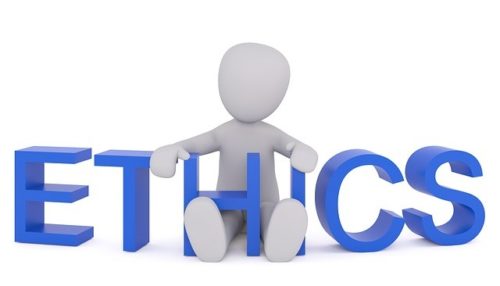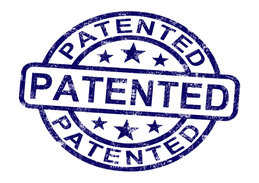-
Banking for the Non-Banking Attorney In this timely and compelling CLE program, attorney, Kathleen A. Scott presents “Banking for the Non-Banking Attorney”. Attorney Scott starts the program with an introduction to banking regulators and powers. The program continues with an overview of capital requirements and transaction-related issues. Ms. Scott also explains anti-money laundering and economic sanctions. The program concludes with a discussion of other regulatory issues. This program is a must for any attorney. Agenda:
- Principal banking statutes
- Banking regulators
- Basic banking powers
- Capital requirements
- Transaction-related issues
- Anti-money laundering
- Economic sanctions
- Other regulatory issues
-
Ethics in Business Law In this timely and compelling CLE program Attorney, Todd Kulkin, presents Ethics in Business. Mr. Kulkin starts the program with a discussion on Confidentiality, Conflict Of Interest, and Solicitation & Networking within the ABA model rules. The program continues with an overview of No-Contact Rule, Referral Fees, and Communicating With Unrepresented Persons. Additionally Mr. Kulkin will cover Attorney as third-party neutral, Trust account issues, and Non-law practice activities, The program concludes with an explanation if a lawyer should take equity. This program is a must for any attorney. Agenda:
- Confidentiality
- Conflict Of Interest
- Solicitation & Networking
- No-Contact Rule
- Referral Fees
- Communicating With Unrepresented Persons
- Attorney as third-party neutral
- Trust account issues
- Non-law practice activities
- Should You Take Equity?
-
Cyber Security for Lawyers and Law Firms In this timely and compelling CLE program, attorney, Russell Jackman presents: “Cyber Security for Lawyers and Law Firms.” Mr. Jackman introduces the program going over major concerns with cyber security and explains what malware and cyber attacks are. The program continues with a discussion of who the attackers are and how they attack a law firm or lawyer's computer. The program gives an in-depth explanation of how to protect yourself and your computer. This program is for any attorney with a computer. AGENDA
- Concerns with Cyber Security
- Malware and Cyber Attacks
- Who is attacking
- Ransomware
- Hijackers and Adware
- Virus, bugs, and worms
- Anti-Virus Software
- Firewalls
-
Introduction to Psychiatric Malpractice In this timely and compelling CLE program, attorney Gregory Radomisli presents, Introduction to Psychiatric Malpractice. The program begins with an introduction to psychiatric malpractice and the duty of care that is involved. Mr. Radomisli continues the program with a discussion on the types of the general cases involved. Mr. Radomisil then presents the principles of medical malpractice as applied to psychiatric care. The program concludes with an explanation of specific cases and the law involved. This program is for any attorney. Agenda:
- What is Psychiatric Malpractice
- Duty of Care
- Types of cases in general
- General Principles of Medical Malpractice as Applied to Psychiatric Care
- Specific Cases
- Voluntary and Involuntary Hospitalization
-
Is that Worker an Employee? Questions and Answers on Worker Classification In this timely, and compelling, CLE program attorney Michael DeBlis presents: “Is that a Worker or an Employee? Questions and Answers on Worker Classification.” Misclassification of employees as independent contractors is now a common phrase uttered by state and federal legislators and regulators. State task forces have been formed to crack down on businesses that do not pay unemployment insurance and workers’ compensation premiums or withhold taxes for workers whom the state believes are employees and not independent contractors. This program is for any attorney. Agenda:
- Why does it matter how a company classifies its workers?
- What are the consequences of worker misclassification?
- In what ways are state and federal regulatory agencies focusing on independent contractor misclassification?
- If I misclassify my workers as independent contractors rather than employees, how will the government find out?
- Does the fact that most, if not every company, in a given industry treats its sales force as independent contractors immunize XYZ Corporation from a successful challenge mounted by the IRS?
- Is there a simple test for whether a worker is an independent contractor or employee?
- My workers all sign a contract and agree they are independent contractors. Won’t that help?
- To be safe, should I just treat all workers as employees even if they are independent contractors?
- I’ve heard that Section 530 will protect my business as long as it follows an industry standard. Is that true?
- What factors militate in favor of a worker being classified as an independent contractor?
- I received a letter from the State Department of Labor or from the IRS that appears to question my worker classification. What should I do or not do?
- Recommendations to Minimize or Avoid Future Misclassification Exposure for Companies That Use Independent Contractors to Supplement Their Workforce
-
Pre-sentence Investigation (PSI) Critique: Mitigation as Counter Strategy in Child-Pornography Cases In this timely, and compelling, CLE program attorney Mark Silver presents “Pre-sentence Investigation (PSI) Critique: Mitigation as Counter Strategy in Child-Pornography Cases”. The program begins with an explanation of what PSI is. The program continues with a discussion on the importance of PSI and what is missing from these investigations. Mr. Silver then presents evaluation tools and mitigation challenges. This program is for any attorney. Agenda:
- What is Pre-Sentence Investigation (PSI)
- Why this PSI is important
- What is missing from the PSI
- Evaluation tools
- Mitigation Challenges
-
Covid-19: Business and Asset Protection A coronavirus-induced recession is no longer avoidable—it is happening right now. Each recession brings with it declining sales, job losses, falling rents, and defaults on loans and leases. When a crisis hits, getting a head start matters and those who have prepared will fare better than those who have not. This engaging presentation on protecting assets from plaintiffs, lenders, creditors and the government will cover lessons learned from the financial crisis of 2008 that we can apply to 2020, what businesses can do now to transition into the recession, and how companies and individuals can protect their assets from litigation and creditor threats. The instructor will share real-life stories and anecdotes, and will present a very practical approach to protecting assets. The discussion will also cover asset protection planning in a troubled economy, focusing on protecting assets from lenders and landlords and how to plan after a lawsuit, a default or an accident. Agenda:
- Debt Collection
- Fraudulent Transfers
- Entity Planning
- Choice of Entity
- Planning with Trusts
- Foregin Trusts
- Retirement Plans
- Examples
-
The Art and Science of Hourly Billing In this compelling and timely program, attorney, Colt Dodrill presents “The Art and Science of Attorney Billing.” The program begins with an explanation of why billing is important, the relevant ABA model rules, and fee agreements. Mr. Dodroll continues the program with a narrative explanation and adding value .The program also covers efficiencies and time management principles. The program concludes with client billing guidelines and tips. This program is for any attorney. AGENDA Introduction
- Why billing is Important
- ABA Model Rules
- Fee agreements
- Rejected time entries
- Elements of Time Entry
- Syntax
- Verbs
- Nouns
- Basis
- Kickers
- Block Billing
- Value Triangle
- When to be ambiguous
- When to be specific
- Brevity is the soul of wit
- Pareto Principle (80/20 Rule)
- Rules of Thumb
- Time Management
- Client Billing Guidelines
- Tips
-
Fundamentals of Patent Prosecution - 2.0 Credit Hours In this timely, and compelling, CLE program Attorney Tyler Dunham covers Patent Prosecution or alternatively: The Basics of How to Obtain a Patent. Attorney Dunham will take participants, from beginning, to the end of how to obtain a patent. The program begins with information about the USPTO and types of patents. Mr. Dunham will continue the program with an explanation of the application process and the paperwork involved. Mr. Dunham will, also, cover the prosecution process in great detail. The program will conclude with a discussion on international patents and patent enforcement. This program is for anyone who wishes to learn more about patents and the patent process. Agenda General Info About the USPTO What Types of Tech can be Patented? 35 USC 101 What Types of Tech cannot be Patented? Who Can File Patent Applications? Types of Applications Other Miscellaneous Paperwork Usually Filed Patent Searching The Prosecution Process After Allowance International Patenting Patent Enforcement
-
Avoiding #MeToo and Sexual Harassment in the Workplace



